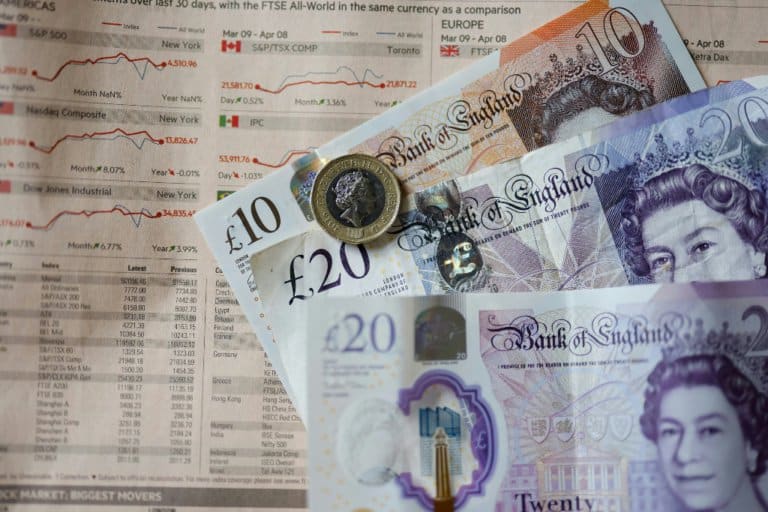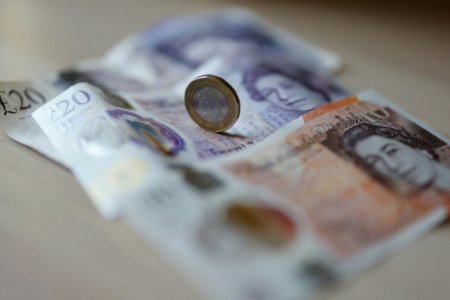
The British pound has gone through turbulent changes in recent weeks. Former Prime Minister Liz Truss gambled on a heavy dose of tax cuts, deregulation and free-market economics to reignite her country’s growth — a move that saw her end her tenure after 45 days in office.
The result of her economic plan? An unstable currency. Shortly after the announcement, British stocks and bounds, along with the pound, plummeted to fresh lows against the US dollar — levels which have not been seen in nearly four decades, says the New York Times.
Fortunately, the Bank of England intervened — in a rare move — by stating its intention to buy British government bonds on “whatever scale is necessary to restore orderly market conditions”. However, this solution could be temporary due to slow economic growth and growing post-Brexit tensions, as reported by Reuters.
You might be thinking: “How can international students make the most out of this situation?” The great news is that there are ways for you to navigate this challenging financial situation. Curious to know more? Here are our top tips:

At the time of writing, 1 pound is valued at 1.15 US$. Source: Tolga Akmen/AFP
British pound rebounds: How can international students save
1. Budget wisely
Look at your country’s currency exchange rate against the British pound and you’ll know this is true: studying in the UK is an expensive affair. At the time of writing, 1 pound is valued at 5.43 Malaysian ringgit, 94.42 Indian rupees and 500.21 Nigerian nairas.
Need help on how to budget your way out of an economic crisis? Consider using Mint. This free app compiles all your accounts in one place, giving you a snapshot of your financial life. You can also customise your budget based on different categories like bills, entertainment, personal care and more.
Still unconvinced? Hear one user explain how he benefitted from using Mint: “Without Mint helping me manage all of my accounts in one place, I wouldn’t have been motivated to pay off US$125,000 of student debts in 3 years.”
Drawing your weekly budget doesn’t have to be complicated. With note-taking apps like Notion, track your spending patterns and set budgeting goals by creating personalised tables.
2. Plan ahead for your travels
Thinking of travelling to your dream destination but can’t figure out when is the best time to do so? As the British pound gradually recovers, you could save some money if you booked that trip now.
For those who want to travel to Europe on a budget, consider taking red-eye flights (this refers to flights scheduled to depart at night and arrive the next morning). You can also save up to 30% on tickets by booking them as early as six weeks in advance.
The same goes for hostels. While you can try your luck to secure a discounted rate by spontaneously showing up at a hostel, you’ll find yourself a great deal if you book one or two months in advance.

Too cold outside? Stay indoors but don’t set the temperature over 20 degrees Celsius. Source: Ina Fassbender/AFP
3. Save on your energy bills
Winter is coming. How exactly can you prepare for this amidst a financial crisis? Look out for energy grants. Take York University, for example. The university has declared their intention to distribute energy grants valued at 150 pounds to 2,220 students — thanks to a six million pound package targeting the most financially vulnerable.
When you are in your dorm, set the temperature to no more than 20 degrees Celcius, with an optimal temperature of 18 degrees. That is because for every degree higher you set on your heater or reverse-cycle air-conditioner, your energy usage increases by 10%. Or at least that is what celebrity Australian horticulturist Jamie Durie suggests.
If that is too cold for you, dress for the temperature indoors. Pull on cosy sweaters and pants, thick socks, and use blankets to keep yourself warm.
4. Have at least one “no-spend” day each week
Having a no-spend day is a simple yet challenging way to save money. Give yourself a minute and you can likely think of one thing you spend money on at least one thing every day. It could be as small as a bus fare or a snack when you take a break.
Likewise, you can take baby steps to practice a no-spend day. Start by buying food in a weekly shop. Once you identified a routine that works for you, you’ll be surprised by the psychological impact of learning not spending money can help you to become more mindful in the long-term.










